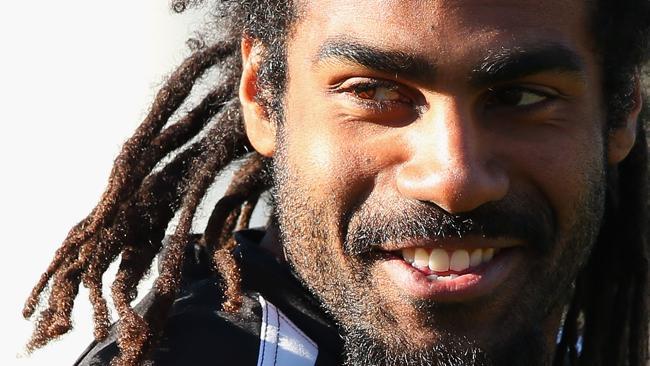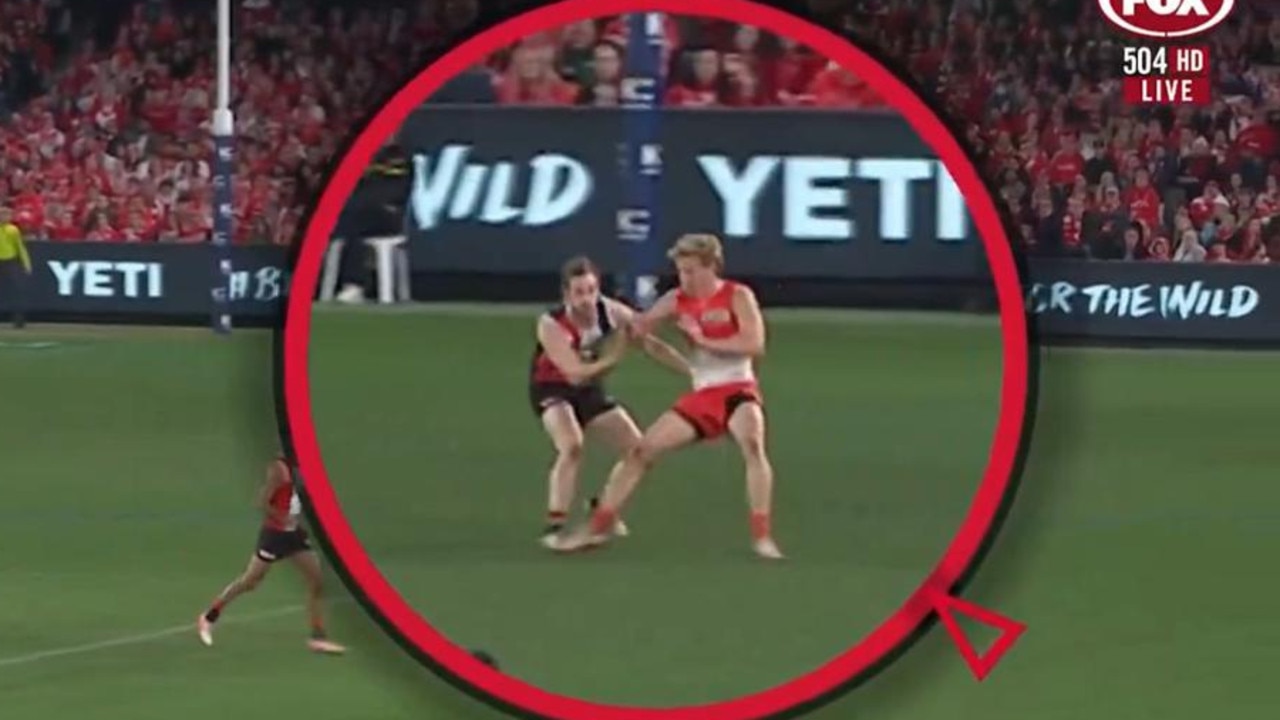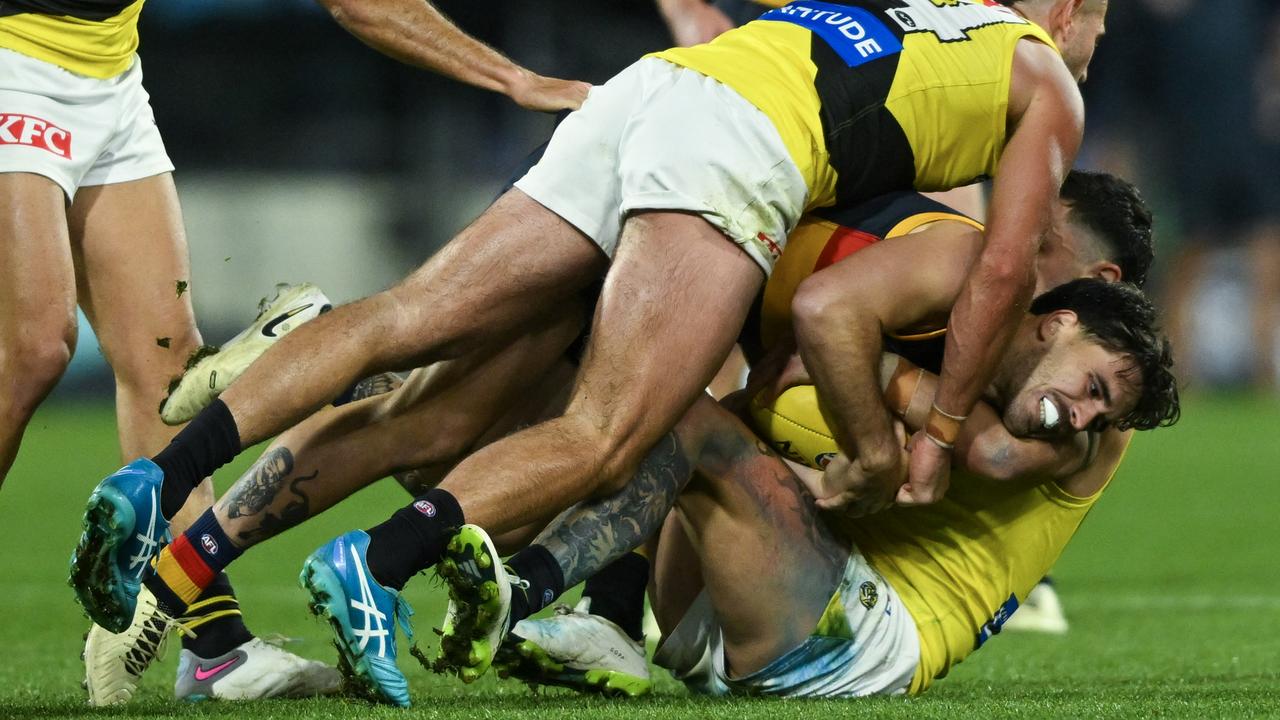Get on the bus and buy into the culture of a football club
IT was as a teenager in the early '80s on one of Port's traditional post grand final crabbing days, that I saw it at its most brutal.

Expert Opinion
Don't miss out on the headlines from Expert Opinion. Followed categories will be added to My News.
IT was as a teenager in the early'80s on one of the Port Adelaide Magpies traditional post grand final crabbing days, that I saw it at its most brutal.
After a day of beach cooked crabs and beer, the bus stopped at the Lower Light Hotel for another round.
The honesty between teammates got out of hand and sparked an all-in brawl; Port players against Port players.
Truths were told and few players were spared. I certainly wasn't.
But key on-field and off-field character issues were resolved, and we all got back onto the bus.
There was also a decade where every Christmas eve, current Port director and 7 x premiership player George Fiacchi would put on an afternoon of drinks for past and present players at his sports store.
As each player dribbled in, they would be regaled with a few lines of cold, kind, abuse, reminding them of their flaws.
Every year Jon Simpson would be told he was the softest player ever to wear a Magpies jumper. All because Dermott Brereton kicked seven goals on him in an Escort Cup game we should have won against Hawthorn.
If Simmo was soft, he would not have turned up every year, but he never missed and was a confident enough guy to know we loved him.
Tough, honest, footy club style love is not for everyone, and when you lose a troubled teammate as we did, you stand at the funeral and wonder if you should have been more sympathetic.
Collingwood has trod the fine line between tough love, tolerance, sympathy and understanding with Harry O'Brien for years.
They have long been aware of the personal issues Harry revealed two weeks ago, and have been helping him cope.
But when coach Nathan Buckley said "We are a side-by-side club that provides for all individuals, so long as those individuals are prepared to be side-by-side with the club", he was admitting the club needed to take action on both health and discipline fronts, because regardless of personal circumstance, some things are simply not acceptable in a team environment.
Telling the coach where to go is unacceptable. And O'Brien's individualistic tweet criticising President Eddie McGuire for his Adam Goodes gaff, and Harry's look at me tweet celebrating his successful hide and seek game with the media during his recent absence, were giveaways that a mental rest was needed.
He was playing his own game, not the team game.
Harry declared himself mentally fit to play the day he walked back into the club, and asked to play multicultural round. The club said no.
Collingwood also refused to play him last weekend and lost. But they made their point, opened the bus doors for him this week, and welcomed him back on.
Buckley himself came through the Port Magpies at the tail end of an era where the cornerstone of the club was it's honesty and accountability system. In the seventies and eighties, after every game; win, lose, or draw; Port players were required to face the hundreds of members in the Alberton social club.
The coach, John Cahill or Russell Ebert, would call every player up on stage one by one, read out their stats, and tell them how they went.
If you played poorly, you were shamed publicly. The coach did not need to say much. The applause, murmurs or silence as you walked on stage told you enough.
Times have changed so much that AFL clubs now hire companies to conduct honesty sessions for them.
Leading Teams has facilitated leadership, accountability and self-assessment programs at Adelaide, Essendon, Collingwood, Fremantle, Sydney, St Kilda, Geelong, the Western Bulldogs and Hawthorn.
The harshness of the old school system is no longer suitable on many levels.
The princesses, introverts, politically correct, racially conscious, socially conscious and the gay that might once have opted out, are now catered for because individuals deserve tolerance and understanding, the football field is their workplace and those guys are often the best players at the club.
The days of a senior player telling someone over a beer at midnight, that they squibbed it, are almost gone.
Players are now told by teammates behind closed doors in a clinical way, with the help of a trained professional.
As part of the "Stop, Start, Keep" appraisal program, a group is assigned to assess a teammate, and then in front of the whole playing list, that teammate is told what he should "stop" doing, what he should "start" doing and what he should "keep" doing.
Adelaide premiership captain Mark Ricciuto believes the system works so well, he uses a watered down version in his business.
Matthew Lloyd admits he enjoyed the system, but not everyone at Essendon did.
"I had guys telling me things that they would never tell me in a one on one forum, but some guys will like it and some blokes won't, some blokes look only at the negatives and some guys will start sooking about it".
Geelong premiership captain Cameron Ling also admitted "it's not for everyone. It only works if everyone buys in".
It's not exactly the Lower Light Hotel system any more, but it's still about getting on the bus.


